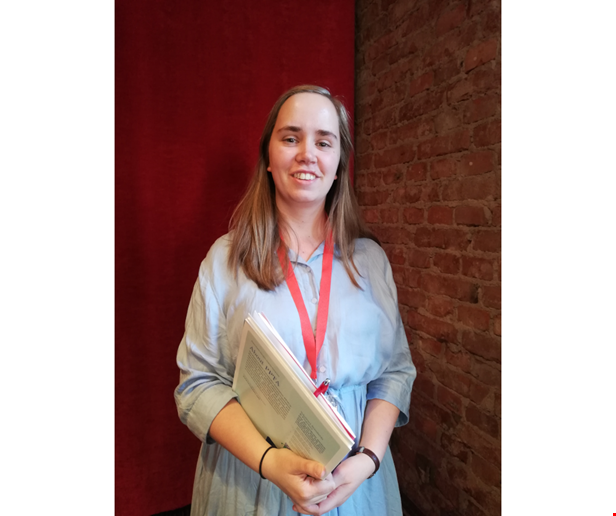Nordic Meeting for Primary Immunodeficiency: the shortage of immunoglobulins is a global problem

Event report by Magdalena Doragrip, EPF Youth Group member
On 25 May 2019 a group of Nordic immunologists, specialised nurses, primary immunodeficiency patients and pharmaceutical representatives gathered in Stockholm during the NMPI (Nordic Meeting for Primary Immunodeficiency) to discuss this global issue in a workshop. EPF Youth Group member Magdalena Döragrip attended the workshop on the supply of immunoglobulins that was organised by the Swedish patient organisation PIO (Primär Immunbristorganisationen). This workshop gave doctors, nurses, pharmaceutical representatives and patient’s a chance to tell their view of this problem. A former chair from IPOPI (International Patient Organisation for Primary Immunodeficiencies) also shared worries and concerns regarding the shortage of immunoglobulins.
Attendees were able to listen to a representative from PPTA (Plasma Protein Therapeutics Association). Together they provided a clear sense on how plasma products are produced in the United States that stands for approximately 75% of the global plasma production. They also provided a bigger sense for what the general difficulties are when it comes to meeting this increased shortage of plasma products and why we have a shortage. One reason for the increased shortage is the production process. The process generally takes between 7 to 12 months before the plasma can be used. In comparison to “normal” pharmaceuticals that has a production process of perhaps a month or two. It is also more expensive to produce plasma products. Normal pharmaceuticals usually has a manufacturing cost at about 14% while the manufacturing cost for plasma products is at 57%.
There is a large number of chronic conditions that require the treatment of plasma products. Some examples are patients with Primary immunodeficiencies, haemophilia, chronic inflammatory demyelinating polyneuropathy (CIDP) etc. More and more conditions are also being treated with plasma products, which also contributes to the increased shortage. It is important to remember that plasma is a finite product, therefore it is important to convince decision-makers and politicians to realise this problem and act, in any way possible. The politics in the world is not the best at the moment and one of the things that was brought up several times during this workshop was, what happens if the United States decides that they only want to provide plasma products for their own citizens?
If that were to happen, the rest of the world, and especially Europe, would have to suffer the consequences.
The only way to ensure that all patients in need of plasma products receive their treatment, is to make Europe and the rest of the world more willing to donate plasma and get the plasma protein companies to be willing to use the plasma from Europe. This is the big conclusion we all reached. We all have a responsibility to increase the awareness about the importance of plasma products and in that way perhaps we will be able to increase the number of plasma donors in Europe and the number of plasma products available.
